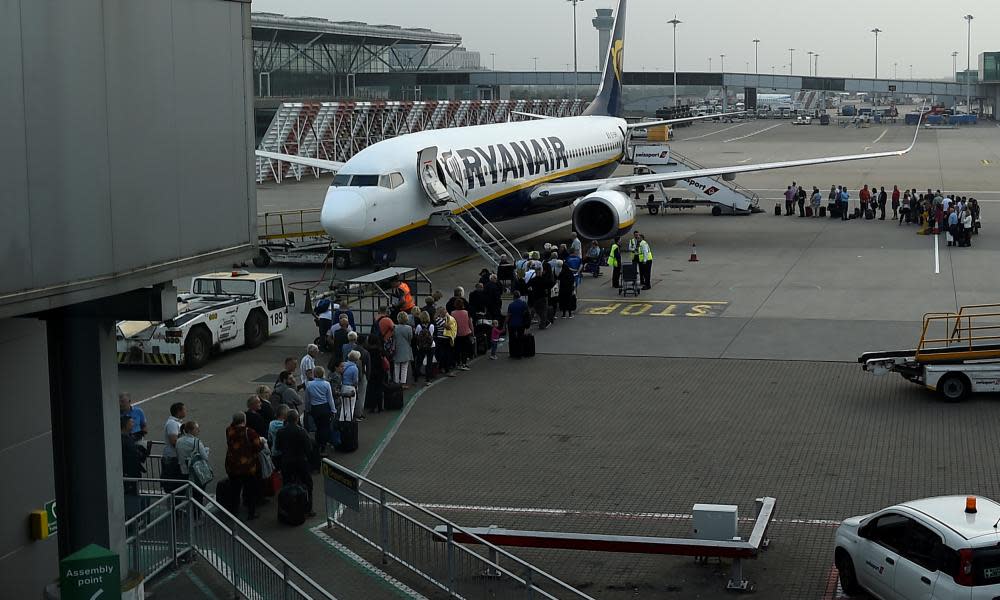Ireland could bring in 'Ryanair-type' passport checks after Brexit

Irish customs authorities have looked at introducing “Ryanair-type” passport controls on ferries, and checks on private jets and helicopters arriving in the country after Brexit, it has been revealed.
Under the common travel area agreements between Ireland and the UK, Irish and British people are not required to show passports travelling between the two countries.
However, Ryanair introduced mandatory checks before boarding for all flights to and from Ireland and this could be introduced by private ferry companies.
Speaking for the first time since he retired in May, the head of Brexit planning at the Irish customs and revenue authority described the process of Brexit as like the separation of conjoined twins.
“The effects of that as you know are always painful and sometimes catastrophic,” said Tony Buckley, who was the assistant general secretary at the Irish Revenue Commission.
He said unpicking 50-year-old customs regime between Ireland and the UK would be difficult, and that checks would be necessary, whatever the outcome of Brexit negotiations.
“From an Irish perspective what we are planning for is some sort of border controls,” said Buckley.
He said his teams had looked at the idea of introducing Ryanair-style passport checks on ferries.
“We’d like that arrangement to operate on the ferries,” he said.
He said technical solutions could be found in due course for cargo but because of the political impasse over the Irish border, the respective authorities were not in a position to plan jointly.
“We are considering solutions and it’s possible to say there are technical solutions, but once again we haven’t been able to discuss them with the UK,” he told the Freight Trade Association conference in London.
Physical checks would also be necessary on all types of travel into Ireland for customs declarations.
“We’ve a new third country on our border that means we have to look at helicopter trips, boat trips people just crossing the border, things that never got discussed before,” he said.
He warned that customs checks and declarations would make it virtually impossible for smaller freight operators to survive.
“There will be a very painful adjustment period, especially for SMEs. The idea of a white van picking 100 parcels and crossing the border, is just not going to be practical but one parcel will trigger a check,” he said.
Buckley stressed that the border controls he was outlining were not applicable to the north-south crossings but he predicted there would be mass consolidation on these routes for the same reasons.
There are currently 4.6m commercial vehicles crossing the border every year, almost double the Dover-Calais traffic.
Borders in eastern Europe involved delays of three hours, and delays on the Norway-Sweden borders took 15 minutes – “14 minutes longer than acceptable”, Buckley told the conference in London on Wednesday.
But he warned that border controls and delays would be inevitable whatever Brexit deal the British government struck in Brussels.
“If you leave the EU, then the only precedent is that there must be border controls because the regulation will apply,” said Buckley.

 Yahoo News
Yahoo News 
